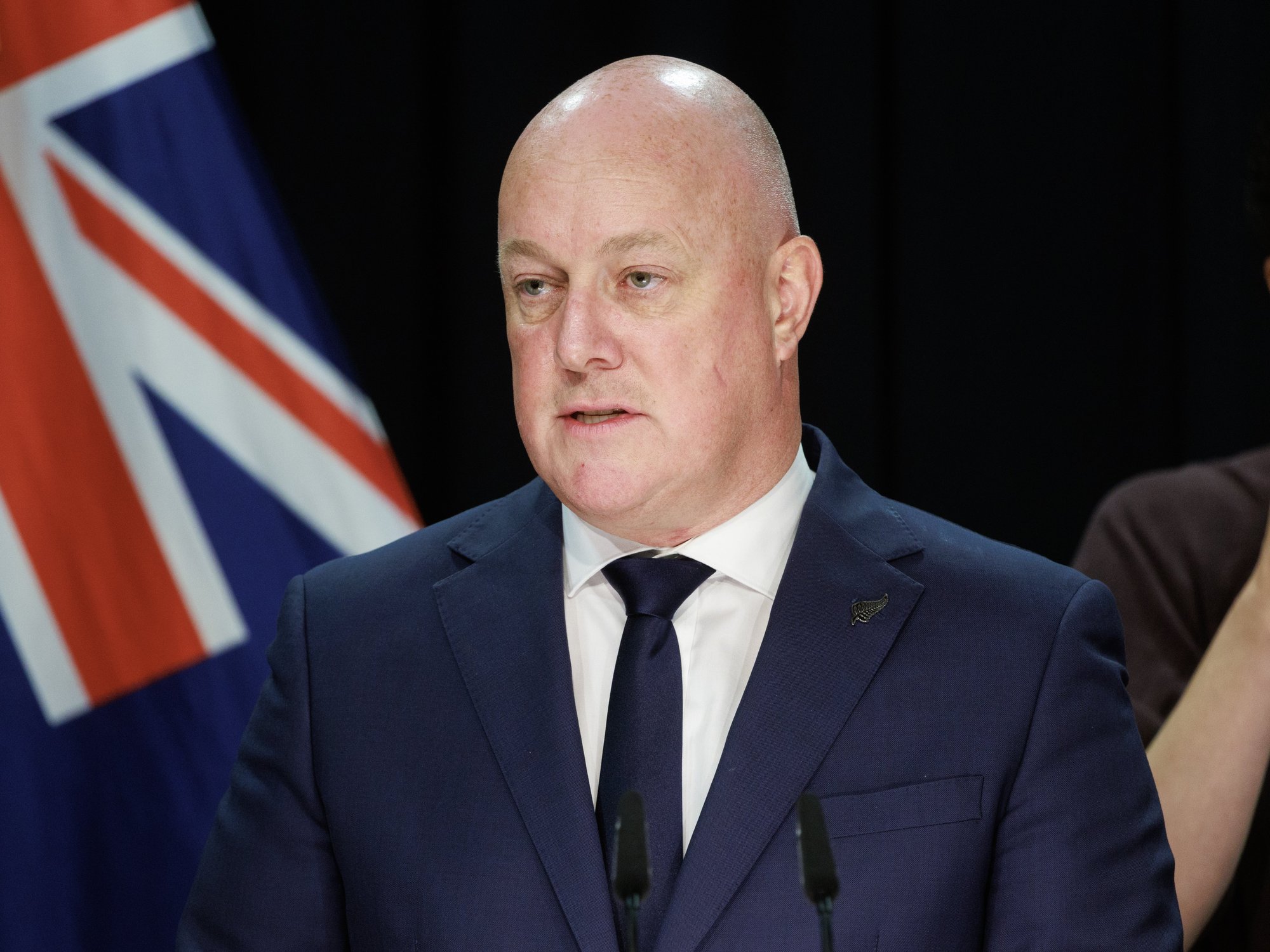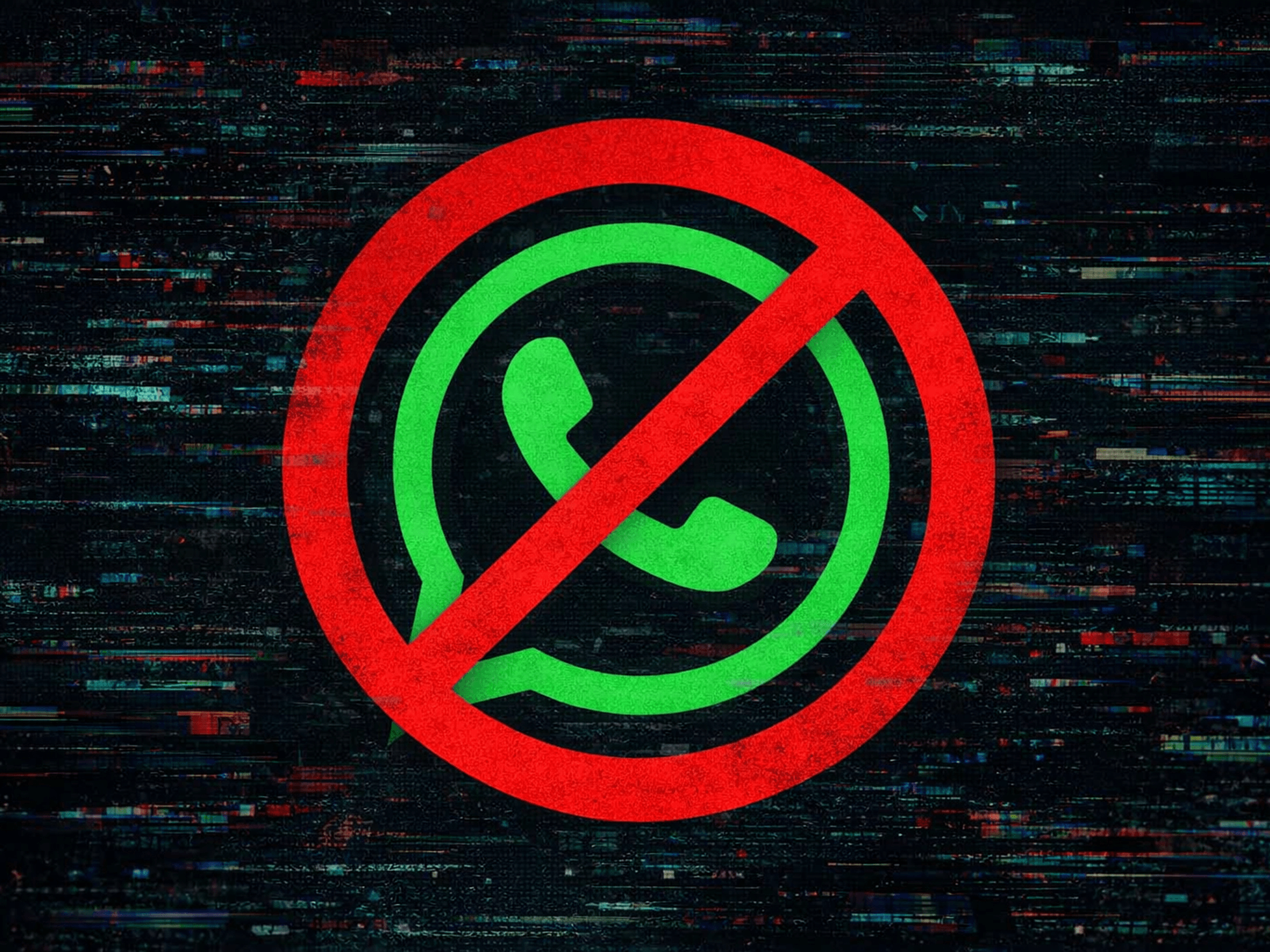WhatsApp confirms major shake-up for millions of Windows PC owners, and it's not all good news
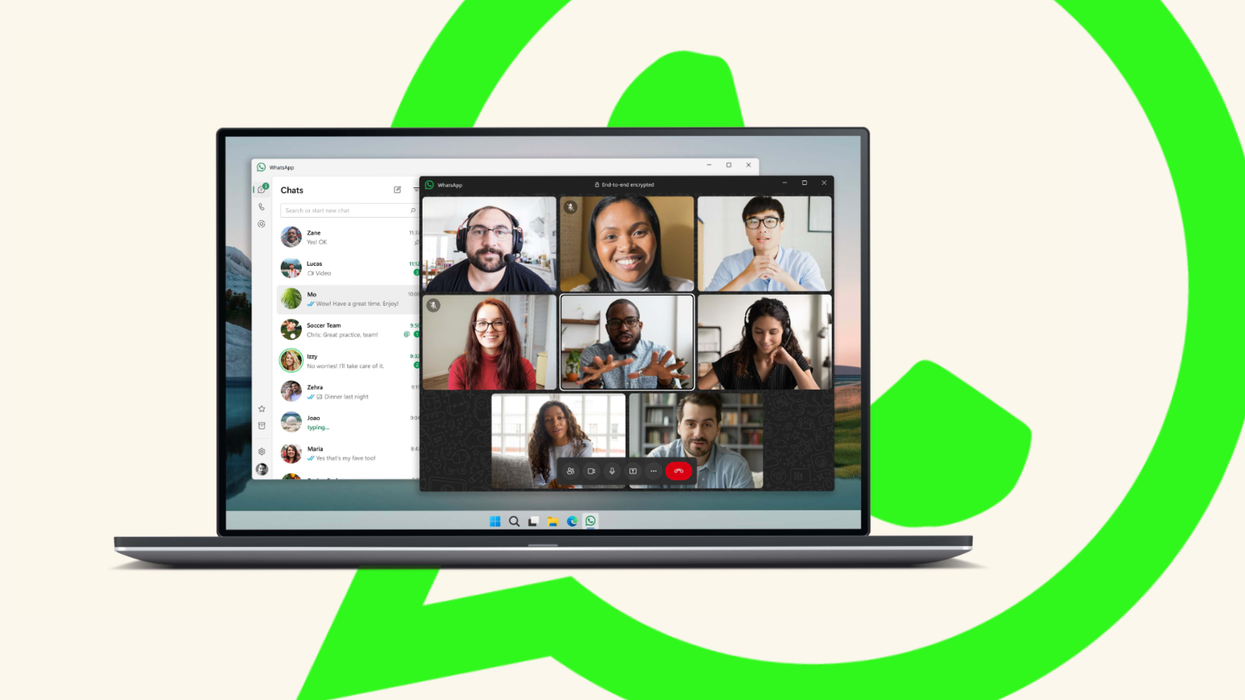
WhatsApp could be about to U-turn on one of its biggest changes to the desktop app on Windows in the last three years
|META PRESS OFFICE | GB NEWS

Three years after rebuilding its desktop app from the ground-up, WhatsApp could be about to undo all of that hard work
Don't Miss
Most Read
WhatsApp is poised to overhaul its desktop app on Windows... and not everyone will be happy with the change.
It comes less than three years since the last major shake-up on Windows, when the team at WhatsApp rebuilt its desktop application from the ground up. Released in August 2022, the new app for Windows 10 and Windows 11 was created to enable the messaging app to leverage native Windows technologies, improving overall performance on PC.
When it launched its native app, WhatsApp promised the re-engineered software would "increase reliability and speed". In a blog post revealing its decision to move to a native app, the Meta-owned service boasted: "Designed and optimised for your computer’s operating system."
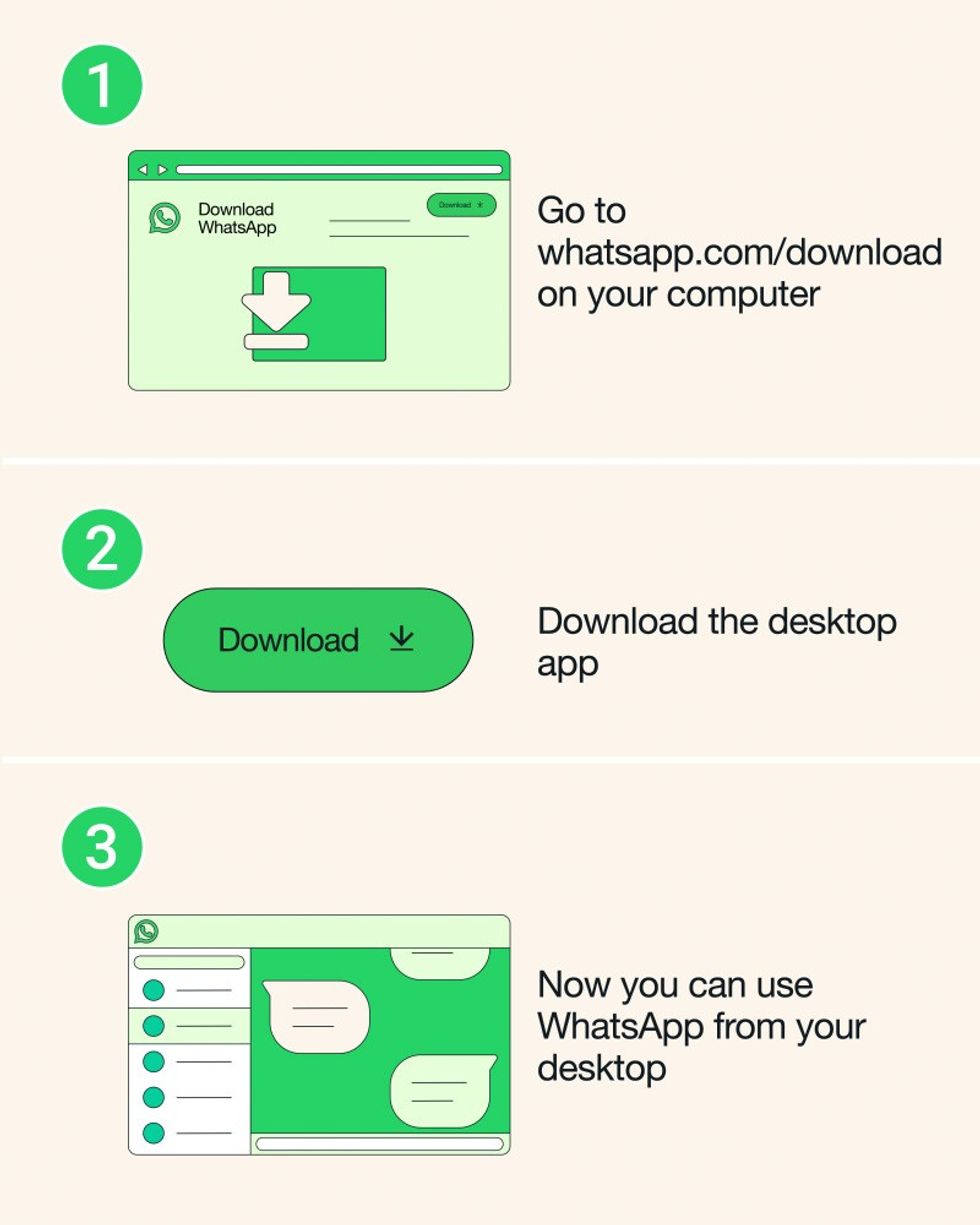
WhatsApp offers dedicated apps for Windows and Mac, despite both of these platforms being able to send and receive messages, video calls, and documents via the WhatsApp website
|META PRESS OFFICE
Despite that, WhatsApp could be poised to return to the web-based version that it superseded three years ago.
Yes, it's true. The latest beta version of WhatsApp reveals the developers have switched from the native build introduced in August 2022 back to a wrapper for the web version of the messaging service.
Not only does this alter the appearance of the messaging service, but it changes the way notifications work — since you'll be reliant on browser-like functionality for notifications, rather than native support. However, the beta does add support for WhatsApp Channels, as well as new functionality in WhatsApp Status and Communities.
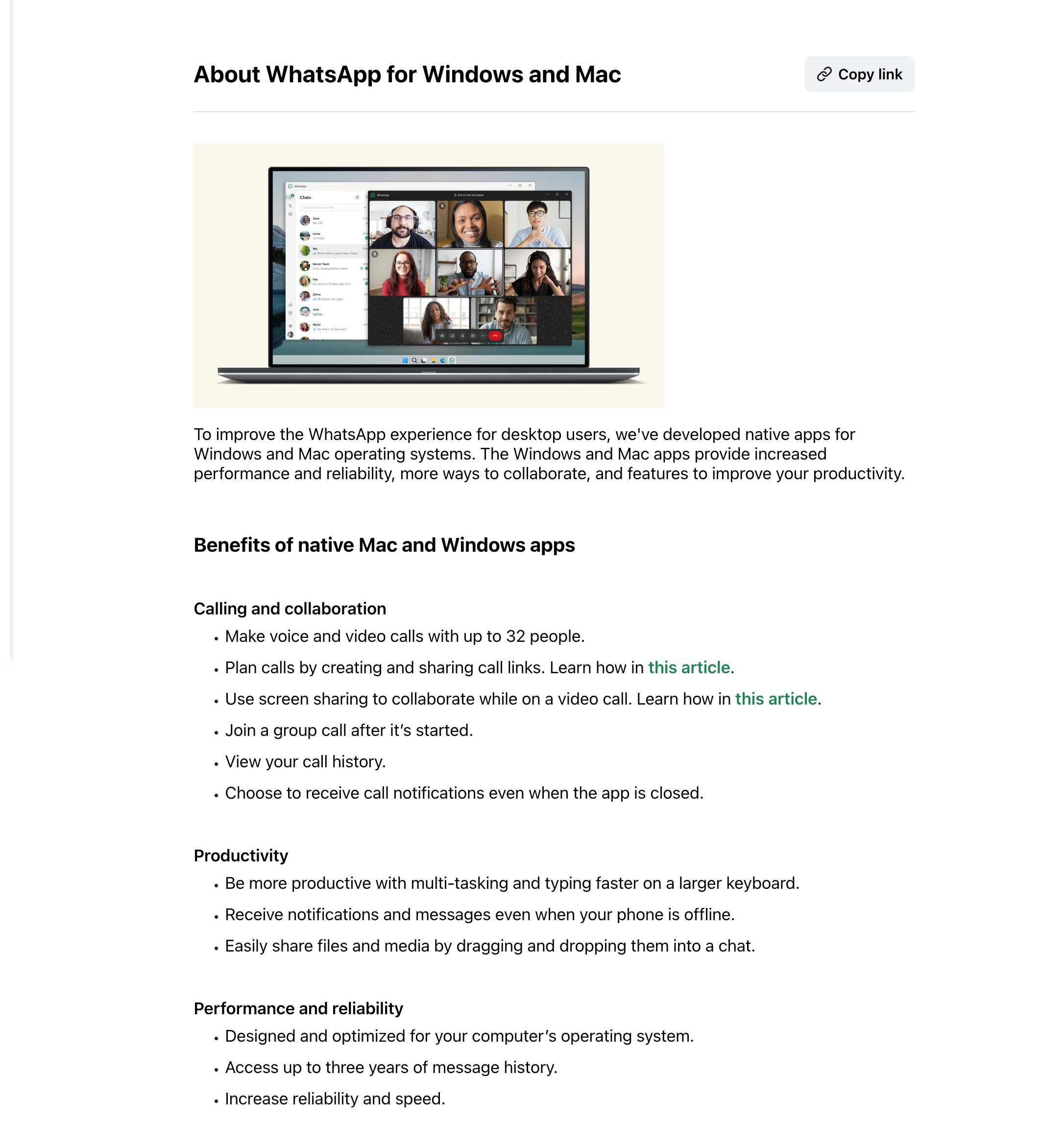
After it redesigned WhatsApp on Windows from the ground up as a native application, the team at Meta published a blog post highlighting the benefits of desktop apps built specifically for the platform
|META PRESS OFFICE
Since the desktop app is no longer built natively for Windows, WhatsApp users might see a drop in performance, or even worse, battery life.
Why has parent company Meta decided to take this decision? If the change leaves the beta test version of the app and rolls-out to Windows PCs worldwide, it's likely to be a way to better allocate resources within Meta.
By relying on WhatsApp Web to power its Windows app, Meta has removed the need to replicate the same features and designs across two different apps. With the recent introduction of an iPad app, the most popular messaging service, with over 2 billion users globally, already has a packed portfolio of apps to keep updated.
The eagle-eyed team at Windows Latest was the first to sport the shake-up. It notes: "This means WhatsApp is back to how it was a few years ago. It does have a couple of new features because web.whatsapp.com was always ahead of Windows app development, but it’s slower and uses more RAM.
"It’s one thing if an indie developer opts for web apps because they cannot afford to maintain the codebase across all platforms, but it’s actually sad when a trillion-dollar company like Meta is not willing to ship and maintain a native app for Windows 11, which has 1.4 billion monthly active PCs."
The launch on iPad and U-turn on WhatsApp on Windows aren't the only headline-making news to come out of WhatsApp in the last few weeks. Parent company Meta (née Facebook) has also introduced advertising to WhatsApp for the first time in its history, breaking a pledge made by WhatsApp's co-founders.
LATEST DEVELOPMENTS
- Google Pixel 10 unmasked weeks before release
- Android 16 released, but only work if your phone is on this list
- Best VPN deals
- EE unleashes 'faster, more secure' network to 34 million Britons
You'll now see adverts when viewing Status updates from friends and family, similar to Instagram Stories, and businesses can pay to promote their Channels within your app.
The company assures users that personal messages, calls and groups won't be used to determine which advertisements you see. Your phone number won't be sold or shared with advertisers, and private communications remain end-to-end encrypted.
More From GB News





